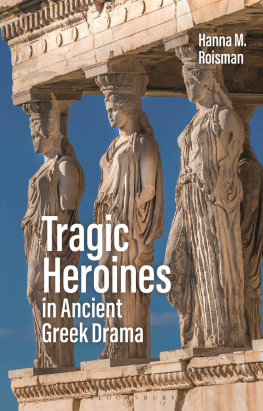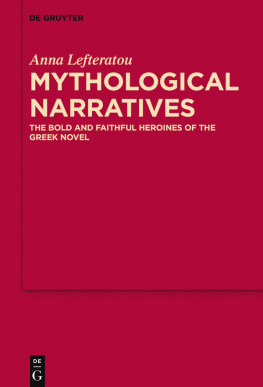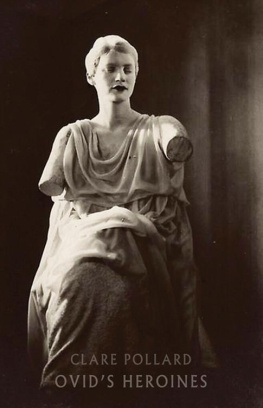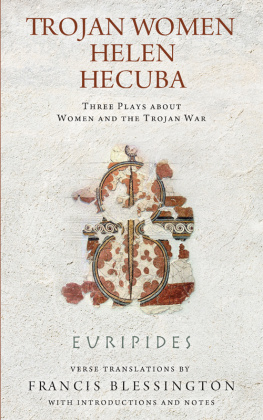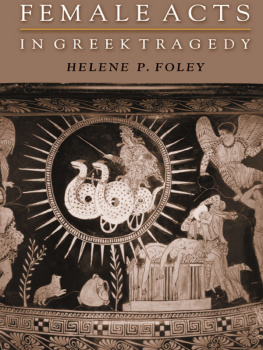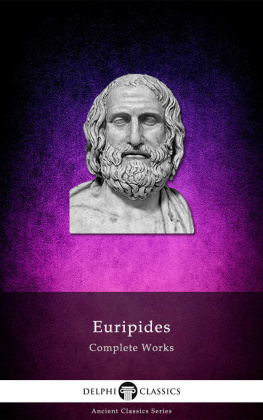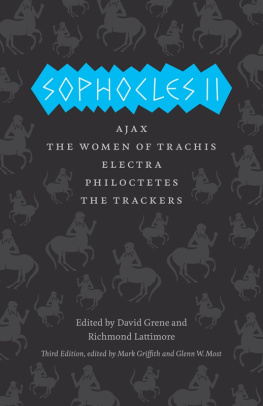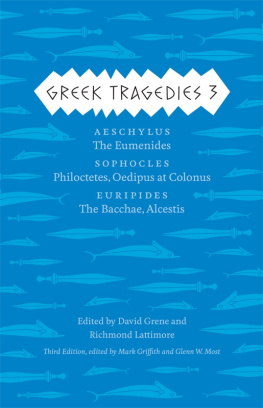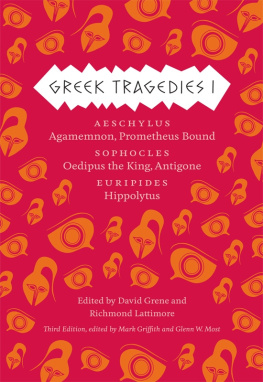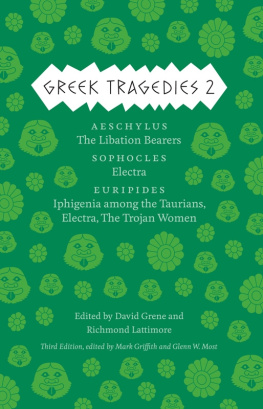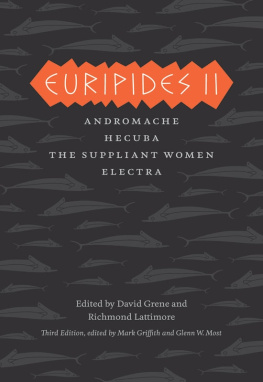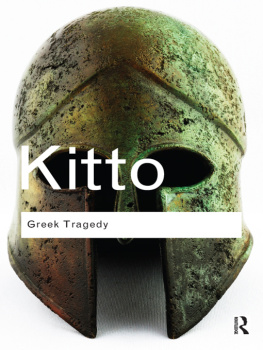
TRAGIC HEROINES IN ANCIENT
GREEK DRAMA
For
Yossi,
Elad and Helaina
and my granddaughters
Talia and Yael
and for Shalev and Diana
and my granddaughters
Noa and Esti
Also available from Bloomsbury
ORIENTALISM AND THE RECEPTION OF POWERFUL WOMEN FROM THE ANCIENT WORLD
edited by Filippo Carl-Uhink and Anja Wieber
WOMEN IN ANCIENT GREECE
by Bonnie MacLachlan
WOMEN IN GREEK MYTH
by Mary R. Lefkowitz

CONTENTS
First and foremost, I offer fond thanks to the many generations of students who have studied Greek Drama with me at Tel Aviv University, Colby College, Cornell University, and American University. Their interest, insights, and questions have spurred me to revisit and rethink many of my views about tragedy, especially about the characterizations of the tragic heroines. The questions of those reading Greek tragedy for the first time have brought a refreshing vigor to my own lifelong examination of the genre, encouraged new thoughts, and provided many welcome occasions for me to reconsider long-held opinions. I am grateful for all the inspirations granted to me by my students, one of the most significant audiences for whom we write and work.
I also owe special gratitude to a group of people who came to my aid while writing this book. Special thanks are owed to my good friend Dr. Jill Yonassi for her stalwart support in recent years: for her insights, questions, comments, and inspiration, as well as for making this manuscript more readable. Karen Gillum saved me from many referencing pitfalls and gave me very helpful comments. To Dr. Julie Brown many thanks for reading through early drafts. I am more than indebted to Alice Wright for her good will, encouragement, facilitation, and for having found time in a very hectic period of her life to carefully inspect the submitted manuscript. The project would not have been possible without her. To Lily Mac Mahon many thanks for the expert advice and help with the maps and the book cover. Over my long career I have also benefited from the useful suggestions of many referees.
To my beloved family: Yossi, Elad, Shalev, Helaina, Diana, Talia, Noa, Yael, and Esti, thank you for being there for me. None of this would be possible without you!
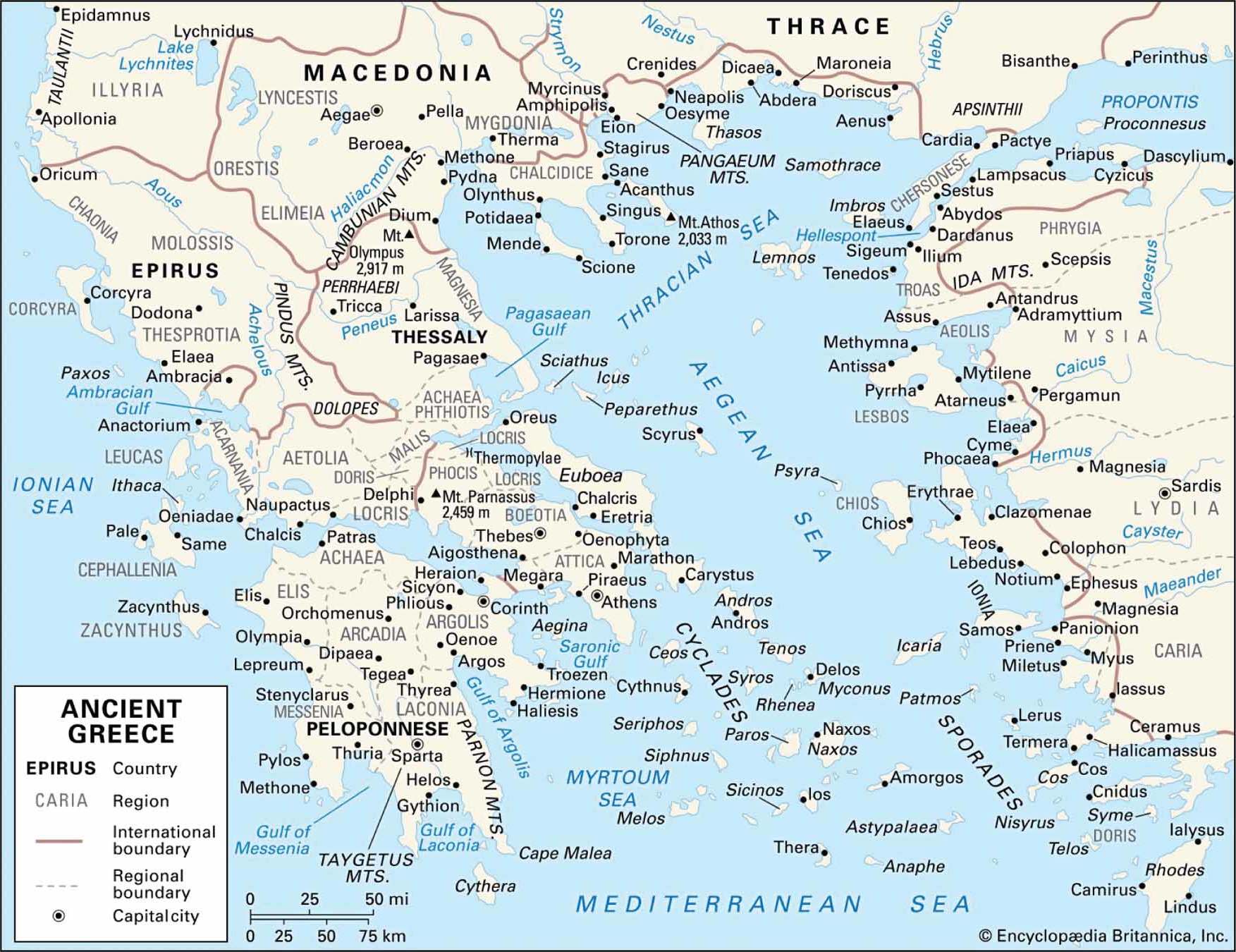
Ancient Greece. Copyright: Encyclopdia Britannica, Inc.
ALPHABETICAL LIST OF
DISCUSSED TRAGEDIES
AESCHYLUS
(ca. 525456 BCE)
Oresteia 458
Agamemnon
Libation Bearers
Eumenides
Seven against Thebes
SOPHOCLES
(ca. 496/5406/5 BCE)
Antigone
Electra 418410
Oedipus at Colonus 401
Women of Trachis
EURIPIDES
(ca. 485/80406 BCE)
Alcestis 438
Electra 422417 or 415413
Hecuba
Helen 412
Hippolytus 428
Ion
Iphigenia among the Taurians 414412
Iphigenia at Aulis 405?
Medea 431
Orestes 408
Phoenician Women 411409
Trojan Women 415
This book addresses eleven prominent female heroines in extant Greek tragedy: Clytemnestra, Electra, Iphigenia, Antigone, Helen, Hecuba, Alcestis, Deianeira, Medea, Creusa, and Phaedra. The aim is to help students gain a more thorough understanding of the heroines personalities, roles, and agendas through a close inspection of the texts. The emphasis is on the characters of the heroines and on their relationships, allowing a vivid picture to be formed in the readers minds. However, the discussion also looks at how the tragedians created their dramatic heroines, through use of language and plot. Bearing in mind that many readers may not be familiar with Greek, the analysis attempts to offer an appreciation of some aspects of the tragedians use of language in an accessible way. Where Greek terms are introduced they are always transliterated and accompanied by translations. In this way some of the poetry and dramatic effects of the texts may be presented, without presupposing any knowledge of Greek. Tinted boxes at the start of chapters offer brief explanations of the myths and plays the heroine appears in, while those occasionally appearing in the middle or at the end of chapters present usually but not always short snippets of information about topics associated with the heroine. Each heroine will be addressed in a separate chapter, all of which close with discussion topics. Several chapters will not only include the portrayal of the heroines by more than one tragedian but also comparisons of the fluid portrayals of heroines reappearing within a single author such as Helen, Hecuba, and Electra by Euripides.
One of the reasons that the Greek tragedies have become increasingly popular over the last hundred years is that many of their themes are almost shockingly modern. The fictional heroines are depicted as living in a mythic era, several hundred years prior to the lives of the tragedies Athenian audiences, and some thousands of years before the modern era, yet many of the issues they deal with remain current. Of the eleven heroines that I explore, most appear in Euripides plays, so the discussions will naturally focus more on his treatment of the female characters. This is in tune with the fact that it is Euripides more than his two counterparts who offers in his plays the full potential of the female pattern of experience (Lefkowitz 1981: 5). Electra, Clytemnestra, and Antigone are the only heroines who also appear in Aeschylus, while Deianeira is the only character whose sole appearance is in Sophocles work.
The heroines faced a plethora of dilemmas touching upon almost every aspect of life, and often had to devise ways to defend not only themselves but also those who were dear to them. Many of the heroines are victims of war, even when they are on the more powerful, victorious side. Others have to cope with the stigma of being a foreigner, who has arrived in a strange land either following a man or as the result of divine intervention. The heroines are presented within their family environments as wives, mothers, daughters, and sisters coping with issues women have faced throughout history. There are love triangles where husbands threaten to bring younger women, often trophies of war, into the marital home. There are loyal loving wives and vengeful ones; principled daughters and sisters to a degree of extreme obstinacy and intransigence; there are devoted mothers desperate to save their children, and monstrous ones who are at best indifferent to their offspring and at worst murder them. Tragedy as a genre, however, overstates each and every one of these characteristics and posits them in exaggerated circumstances that life, it is to be hoped, rarely presents.
The different ways the tragedians choose to represent their approaches to the women and the issues they face present fascinating insights not only into the characters but also into their interpretations. Within patriarchal societies womens roles and powers have traditionally been limited, and before embarking upon discussions of the heroines characters we must acknowledge that they were indisputably created within a male-dominated society. However, within the given constraints, each heroine finds a unique way of expressing herself and making her mark, with a variety of results.
Next page
